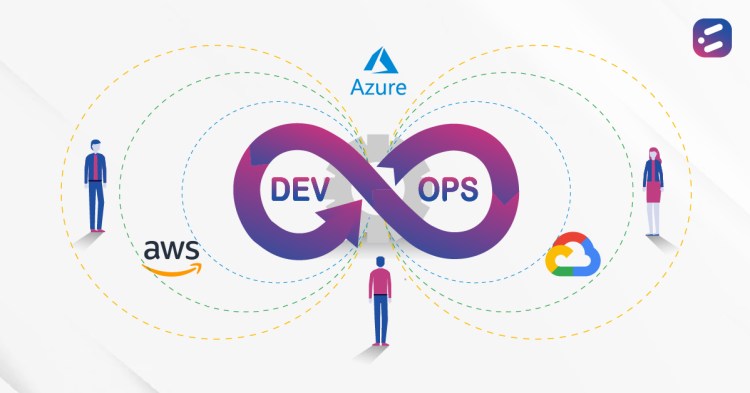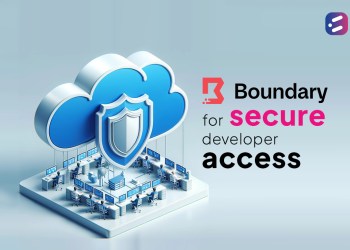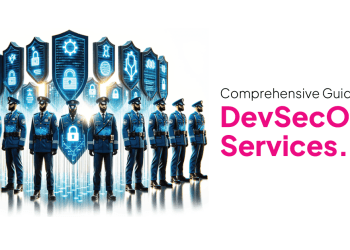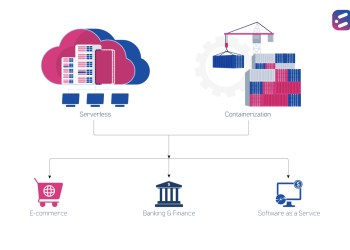
DevOps promotes collaboration, continuous integration and deployment, real-time monitoring, and immediate feedback, leading to the benefits of faster releases and improved quality.
DevOps is a process that has great significance in today’s cloud-first approach to technology. The core principles of DevOps remain the same across different cloud platforms – whether it’s Microsoft Azure, Amazon Web Services (AWS), or Google Cloud (GCP). However, running a DevOps practice on each platform does require certain unique tools and techniques specific to the cloud service provider as well.
As a baseline, let’s start by looking at some of the DevOps principles and practices that are common across platforms.
- Automation: Repetitive tasks such as build, test, and deploy are automated, speeding up delivery and reducing manual human error.
- Continuous Integration (CI) and Continuous Deployment (CD): CI/CD pipelines enable faster release cycles and ensure code quality.
- Infrastructure as Code (IaC): Essentially a framework that uses coding techniques to extend to infrastructure directly, it helps with consistency and scalability.
- Continuous Monitoring: This helps organizations track the operational performance of the app with real-time data on user interactions. Issues can therefore be resolved promptly.
- Collaboration and Communication: Development and operations can work together seamlessly with appropriate tools for collaboration.
While these broad principles remain the same, the specifics of implementing them vary.
Let’s dive deeper into the aspects of DevOps that are specific to each of the three largest public cloud platforms – Microsoft Azure, Amazon Web Services (AWS), and Google Cloud (GCP).
Unique aspects of Azure DevOps
Microsoft Azure offers a comprehensive DevOps platform to its customers. Formerly known as Visual Studio Team Services, Azure DevOps is a Microsoft SaaS platform launched in 2018 that streamlines software development and deployment processes through a suite of features that improve efficiency throughout the application lifecycle.
So, what’s unique about using Azure DevOps?
- Two deployment options: Azure DevOps, Microsoft’s comprehensive suite of DevOps tools, offers Azure DevOps Server for on-premise hosting and Azure DevOps Services for cloud-based hosting. Stand-alone installation on local data centers is available, offering similar features as the cloud-based service.
- Intuitive interface: Azure DevOps features an intuitive interface that allows users to manage multiple organizations and their permissions including organisation management, customizable workflows based on Agile or Scrum methodologies, and pipeline templates for CI/CD.
- Customization: It offers flexibility in defining pipelines through Yet Another Markup Language or YAML (data serialization format that is human-readable). Fine-grained access control is available at the project level, allowing customization based on project requirements.
- Interactive: Azure Boards and Repos provide interactive tools for project management and version control, supporting Agile, Scrum, and Kanban processes. Azure Artifacts offers a package management service to create, host, and share packages across teams, facilitating artifact management in the CI/CD pipeline.
- Quality & Visualization: Azure Test Plans aid in driving code quality through various testing frameworks and feedback mechanisms. Azure Boards track work items, manage backlogs, and visualise project progress through customisable dashboards.
Unique aspects of AWS DevOps
Amazon Web Services (AWS) offers services like AWS CodePipeline, CodeBuild, CodeDeploy, CloudFormation and Elastic Beanstalk for running a DevOps practice to build, test, and deploy applications.
So, what makes AWS DevOps unique?
- High-quality, fast, bug-free coding: Tools like AWS CodePipeline and AWS CodeBuild automatically build and test code changes ensuring that it is of the highest quality and free of bugs before being deployed to production. This reduces the time it takes to get new features and bug fixes to customers.
- Monitoring: AWS X-Ray for instance allows you to visually detect node and edge latency distribution directly from the service map, which means outliers can be quickly isolated helping to better understand performance issues impacting applications and end-users.
- Continuous Improvement: AWS provides a wide range of DevOps tools, such as AWS CodeCommit, a highly scalable, highly secure managed source control service, where you do not need to operate your source control system. There is no hardware to provision or software to install. It eliminates the need to host or scale its own source control servers.
- Security: AWS CodeDeploy is a great example of high-security levels in AWS. The service automatically deploys code to AWS-based on-prem, and third-party computing services and makes it easier for developers to quickly release new features and avoid downtime during deployment. Why is it secure? For starters, customer code is not stored in CodeDeploy. CodeDeploy dispatches commands to the CodeDeploy agent on servers. Also, service-to-service and client-to-service communication is encrypted in transit.
Unique aspects of GCP DevOps
DevOps in Google Cloud Platform (GCP) has a suite of services such as a centralised repository for storing and managing code and ways to streamline allocation, management, and scaling of cloud resources making deployment simple and fast.
Here’s what’s unique about GCP DevOps.
- Code Maintainability: GCP emphasizes code maintainability by providing a centralized repository for storing and managing code. This centralized approach makes it easy for teams to access, review, and collaborate on code changes.
- Easy Deployment: GCP’s Cloud Deployment Manager simplifies the allocation, management, and scaling of cloud resources, including databases, IAM policies, and storage. Additionally, GCP offers Terraform, a versatile tool supporting multiple cloud platforms, enabling greater flexibility for engineers across different cloud providers.
- The GKE Factor: Google Kubernetes Engine (GKE) sets GCP apart by offering rapid access to updates, features, and patches. GKE allows for automatic node upgrades, ensuring swift adoption of the latest enhancements. For instance, Binary Authorization enhances security by ensuring that only authorized container images are deployable, simplifying the deployment process and accelerating development.
Now comes the question of how to tailor your DevOps strategy based on your cloud platform.
- Assess your needs: What are your requirements and development process challenges?
- Look at scalability and flexibility: Ensure the platform can handle increasing workloads accommodate growth, and ensure that it is adaptable to different project requirements.
- Integration: Ensure smooth integration with existing tools and technologies.
- Security features: How is the platform’s vulnerability management, real-time threat detection, compliance assurance, and user authentication?
- User-friendly interface: Look for an intuitive interface with customization options and accessible support channels for troubleshooting.
- Cost optimization: Evaluate pricing models and potential savings.
Azure DevOps, AWS DevOps, and GCP DevOps provide diverse options and unique tools that can help shape your DevOps strategy. But as to which one is best suited for your organization, give the experts at CloudNow a call.













